
Asia Pacific
13:22, 21-Mar-2019
China-Kazakhstan friendship to continue in post-Nazarbayev era
Updated
21:20, 21-Mar-2019
By Li Zhao
01:35
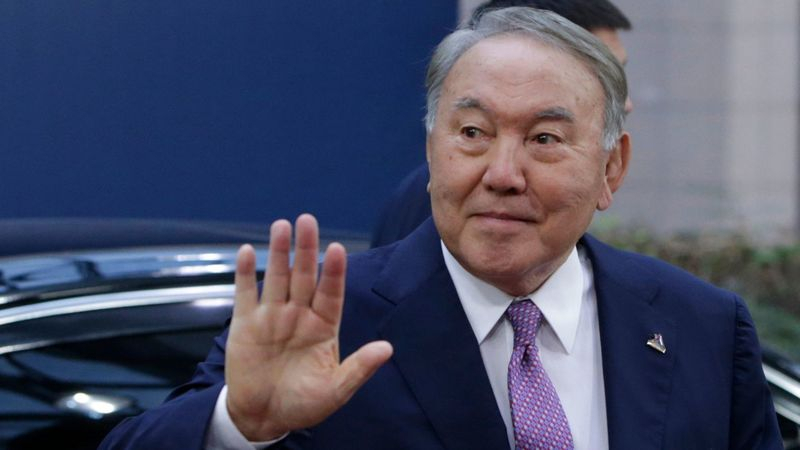
Kazakhstan's first president, Nursultan Nazarbayev, announced his resignation during a televised address to the nation on Tuesday, after nearly three decades in office. He is the last Soviet-era leader to leave office.
The 78-year-old has ruled the largest country in central Asia since it became an independent state after the former Soviet Union was dissolved.
Since taking over the country's top office, Nazarbayev has made over 20 official visits to neighboring China – almost once every year. To him, China is Kazakhstan's "closest and most reliable friend and partner."
Experts believe "win-win cooperation" between the two sides is likely to continue even after Nazarbayev's abrupt resignation.
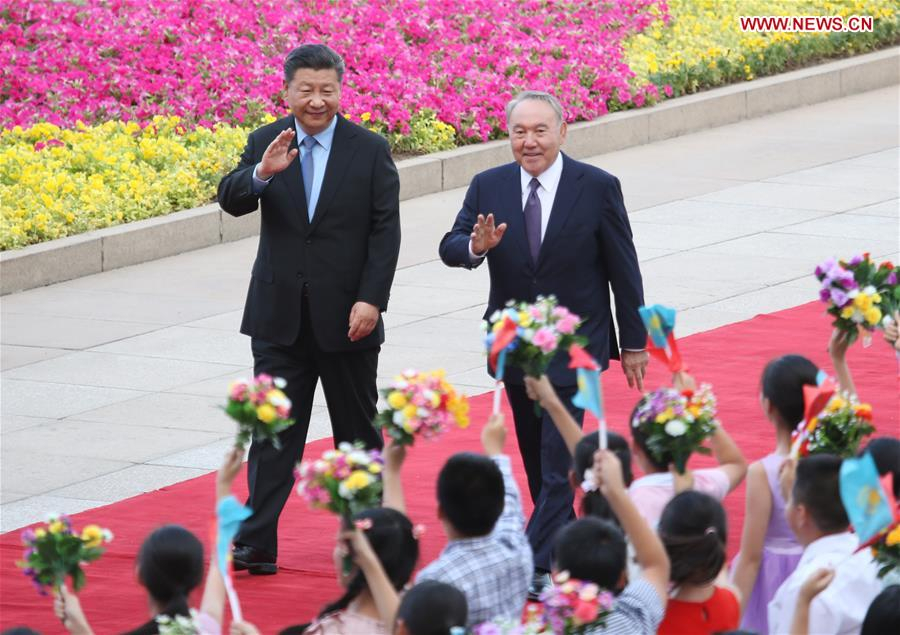
Chinese President Xi Jinping holds a welcome ceremony for Kazakhstan's President Nursultan Nazarbayev in Beijing, June 7, 2018. /Xinhua Photo
Chinese President Xi Jinping holds a welcome ceremony for Kazakhstan's President Nursultan Nazarbayev in Beijing, June 7, 2018. /Xinhua Photo
The 'buckle' to China's BRI
Different varieties of Chinese crops have found a new home in an agriculture innovation park in Kazakhstan's Turgen.
"I've been tracking this cornfield for over a year. The corn from China shows great resistance to both diseases and drought," local agronomist Abumuslim Alisultanovich told Xinhua News Agency.
"Chinese agriculture experts have brought new technologies and varieties of crops to us. Their expertise is admirable," he said.
But such cooperation is never a one-way road.
Wheat powder, edible fat and oil, along with other farm products from Kazakhstan are also making their way into the Chinese market, thanks to the Belt and Road Initiative (BRI).
In 2013, Chinese President Xi Jinping proposed to build a Silk Road Economic Belt, which later evolved into the Belt and Road Initiative (BRI), in Kazakhstan during a state visit. Ties between the two nations on all fronts have since developed fast.
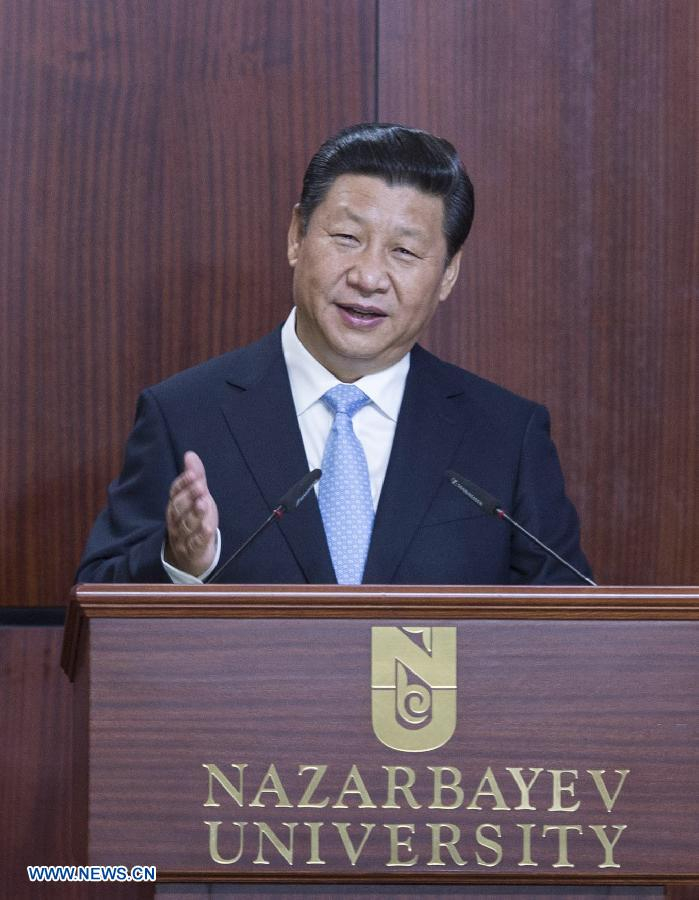
Chinese President Xi Jinping delivers a speech at the Nazarbayev University in Astana, Kazakhstan, September 7, 2013. /Xinhua Photo
Chinese President Xi Jinping delivers a speech at the Nazarbayev University in Astana, Kazakhstan, September 7, 2013. /Xinhua Photo
Four years later, when President Xi returned to Astana, the two sides decided to take a step further by aligning the Chinese initiative with Kazakhstan's development strategy "Bright Path," with industrialization at its core.
This sets an example of a mutually beneficial synergy, connecting the New Eurasian Land Bridge with the economic corridor linking China, central Asia and west Asia.
According to the Chinese Foreign Ministry, bilateral trade volume reached 14.6 billion U.S. dollars in the first nine months of 2018, up 17.5 percent year on year.
"Currently, bilateral cooperation covers areas including transportation infrastructure, trade, manufacturing, energy, agriculture, among other sectors that have great potentials," Nazarbayev said in an interview with Xinhua in 2018.
'He speaks good Chinese'
Calling his successor Kassym-Jomart Tokayev "a man who can be trusted to lead Kazakhstan," Nazarbayev noted in his Tuesday speech that Tokayev speaks fluent Chinese, along with English.
The 56-year-old has taken over as the head of state on Wednesday until the next election, currently scheduled in 2020.
"This implies the importance he (Nazarbayev's) attaches to China," said Cui Zheng, an assistant professor at the Research Center for the Economy and Politics of Transitional Countries at Liaoning University, and Yang Xuemin, an assistant researcher, in an opinion piece published on CGTN Digital.
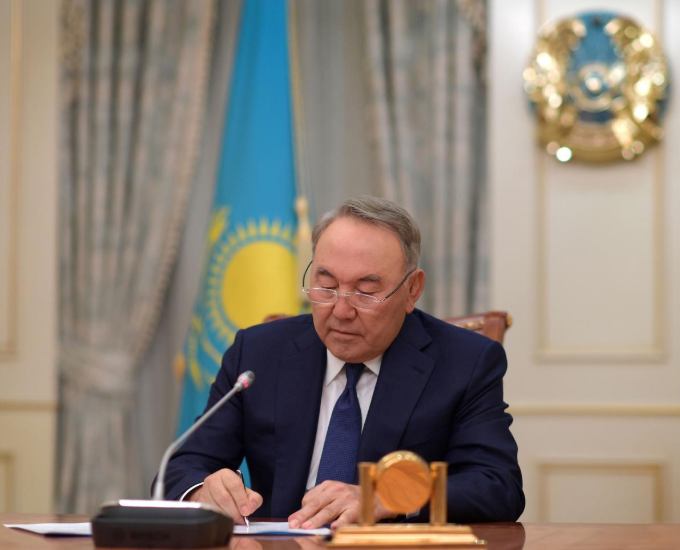
Kazakhstan's President Nursultan Nazarbayev writes during a televised address to inform of his resignation in Astana, Kazakhstan, March 19, 2019. /Reuters Photo
Kazakhstan's President Nursultan Nazarbayev writes during a televised address to inform of his resignation in Astana, Kazakhstan, March 19, 2019. /Reuters Photo
Chinese Foreign Ministry spokesperson Geng Shuang said during a regular press conference on Wednesday that the new president is "a good friend of the Chinese people," adding that China understands Nazarbayev's decision.
But, Nazarbayev is giving up presidency, not power.
The Kazakh leader will remain the head of the country's Security Council while holding the title of "Leader of the Nation". The position grants him the right to oversee domestic and foreign policies.
Gradual departure from political stage
Analysts are not surprised by his exit.
"Nazarbayev had already made full preparations before announcing his resignation," Cui and Yang pointed out in their opinion article.
Nazarbayev seems to be looking for a smooth transition of power: "As the founder of the independent state of Kazakhstan, I see my future task in ensuring the ascent to power of a new generation of leaders, who will continue reforms," he said during his address.
Last year, Nazarbayev made a slew of adjustments to several key positions, including president aide, secretary of the security council and director of the foreign intelligence agency. In February, the government was dissolved and a new prime minister was appointed.
During the same month, Nazarbayev also consulted the Constitutional Council regarding the early termination of presidential powers.
04:00
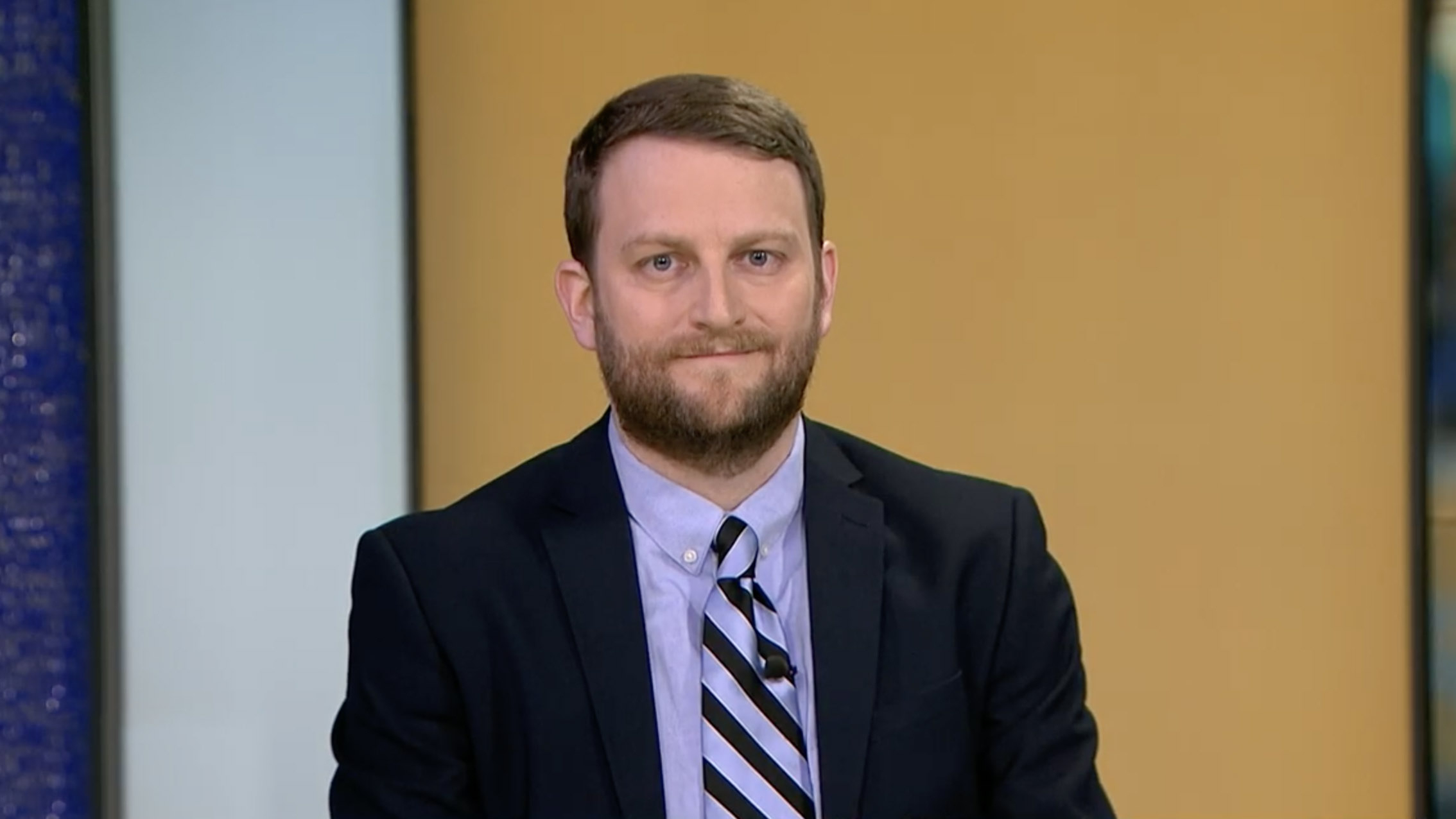
According to Yuval Weber, a fellow at the Kennan Institute, Daniel Morgan Graduate School of National Security, Nazarbayev appears to have learned a lesson from the turmoil in neighboring Uzbekistan which unfolded after President Islam Karimov's sudden demise in office two years ago.
"If there's going to be a transition, he would rather be the one in charge of it," said Weber.

SITEMAP
Copyright © 2018 CGTN. Beijing ICP prepared NO.16065310-3
Copyright © 2018 CGTN. Beijing ICP prepared NO.16065310-3